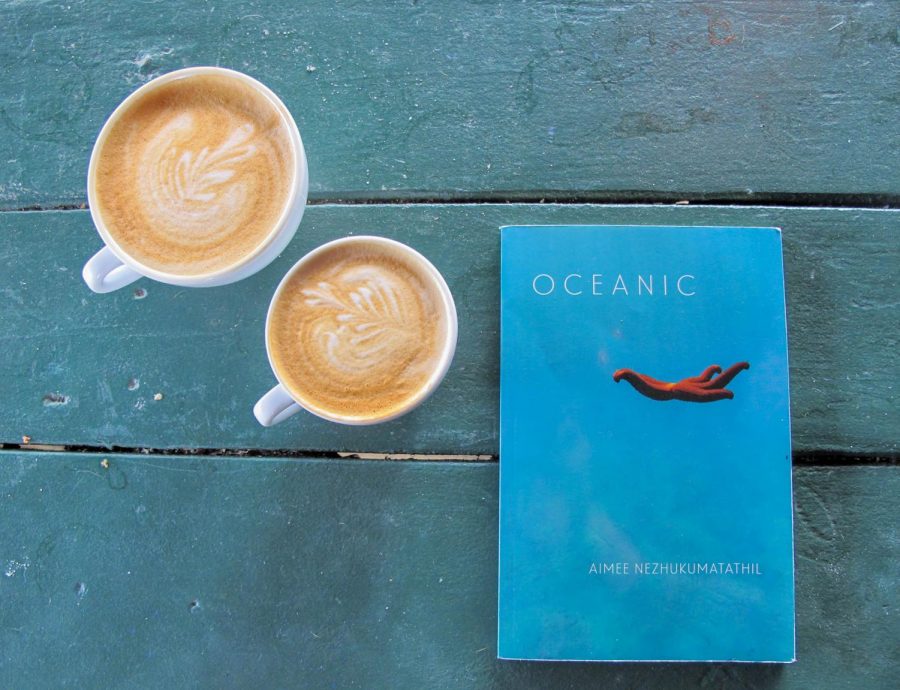Modern poet explores themes of natural world, romance in latest book
“Oceanic” was originally published in 2018. Nezhukumatathil’s work has appeared in Poetry Magazine, Ploughshares, FIELD and American Poetry Review.
Aimee Nezhukumatathil’s fourth collection of poetry, “Oceanic,” details themes of love for the earth, romance and human interaction with the natural world. Her work carries extensive environmental terms and lush images of nature with a flowery approach to tone and style.
Nezhukumatathil is currently the poetry editor of Orion, a literary magazine for nature lovers. She has received honors like the Pushcart Prize and a poetry fellowship from the National Endowment. Nezhukumatahil’s other top-rated books include “Lucky Fish” and “Lace and Pyrite.”
In reading “Oceanic,” I found myself looking up terms like silo, gutrot and mackerel, cultural references like “kathakali” and artwork by Salvador Dali and Jacob de Wit.
In some of her poems, Nezhukumatathil showcases her cultural ties to her Filipino and South Indian culture. She is empowered poetically by both culture and her love for nature.
The poet uses rich and lavish language to describe scenes throughout her work. One particular moment that jolted my poetic nerves was her poem, “On Listening to your Teacher Take Attendance.” In this poem, the speaker compares a teacher to a butcher in the lines, “Your teacher means well / even if he butchers your name like / he has a bloody sausage casing stuck between his teeth, handprints / on his white sloppy apron…”
Nezhukumatathil uses stark, yet soft language like this to describe characters throughout her book. Her use of similes and metaphors are so properly astute with the concepts and scenes she juxtaposes her language to.
Her use of hard enjambments in “Too Many Cooks Spoil the Broth” is mirrored in her other poems, particularly “Two Moths.” Nezhukumatathil discusses the subjugation of women in different cultures within this poem. The enjambments and breaks within the poem illustrate the invasive incision of rape, evident in the lines, “Men / shove greasy rupees / at the door / for one hour / in a room / with a twelve-year-old. / One hour— / One hour—/One hour.”
Nezhukumatathil also includes poems that are written in various forms within “Oceanic,” which showcases her authority and expertise as a poet.
By writing in different forms, Nezhukumatathil demonstrates her knowledge of the poetic world and how her work excels within the confinement of these poetic schemes. Poems demonstrate this are “Aubade with Cutlery and Crickets” and “Travel Mommy Ghazal.”
Overall, Nezhukumatathil’s “Oceanic” calls attention to current cultural discussions on eco-activism, nature and the timeless topic of love. If you are looking for a top-rated, modern poet that is also an environmentalist, consider Aimee Nezhukumatathil.







